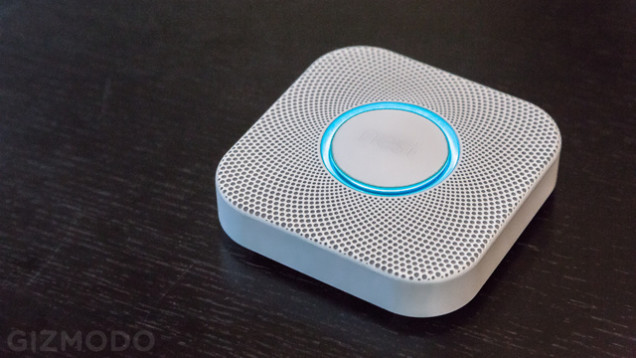In a letter from Nest CEO Tony Fadell today, the company announced it would stop selling its Protect fire alarm while it reconsidered a key feature of the device: The ability to “wave to hush” a warning alarm.
Fadell explains that the issue is with the alarm’s motion detection system, known as Nest Wave. With it, you’re supposed to be able to silence a warning with the wave of your hand. But further tests have revealed that the feature could actually be triggered by accident during a real fire — resulting in a delayed response to actual danger. Here’s how the company described the issue in a statement:
We discovered that movements near the product that are not intended as a wave can be misinterpreted by the Nest Wave algorithm. If this occurs during a fire, this could delay the alarm going off. So, we are disabling this feature until we have a proper solution.
This is an issue we observed while performing laboratory tests. To the best of our knowledge, no customer has experienced this issue.
So, for now, Nest will stop selling new alarms — at least until the company can straighten out the issue with wave. If you already have a Protect, know that the wave feature will be automatically disabled within the next day. If your alarm isn’t connected to Wi-Fi for some reason, Fadell says it’s essential you connect it soon in order to get the updated version of Nest’s software.
It sounds as though sales won’t be halted for long though. The company is changing Protect’s software, not its hardware. So while you won’t be able to buy a new Protect until Nest has a fix in place, the updated device won’t be very different to what’s on the shelves right now. The device is currently only being sold in the US, Canada and the UK.
If you do find yourself wanting your money back, Nest will also be offering full refunds. More information is on a Q&A about the issue here.
